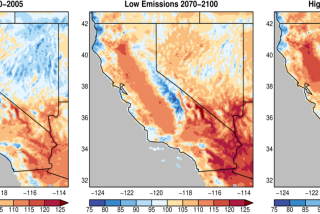U.S. Court Will Rehear Case Against Unocal
- Share via
A federal appeals court said Friday that it would reconsider a groundbreaking decision that Unocal Corp. should stand trial for alleged human rights abuses involving construction of a $1.2-billion pipeline in Myanmar.
The ruling means an 11-judge panel of the U.S. 9th Circuit Court of Appeals will hear new arguments over whether the El Segundo-based company should be held liable for crimes allegedly perpetrated by government troops.
The suit, which is navigating uncharted legal terrain, could decide whether and by what rules corporations may be held liable in U.S. courts for their conduct abroad. It was brought under the same law foreigners have used to sue dictators. The 9th Circuit Court green-lighted one such suit against former Philippines ruler Ferdinand Marcos.
Friday’s ruling was good news for Unocal, said Daniel Petrocelli, one of the lawyers representing the company. “This means that the court understands the seriousness of the issues involved and that our position deserves consideration,” Petrocelli said.
Plaintiffs’ lawyers said the court may want to resolve procedural questions left open in an earlier decision by a three-judge panel of the 9th Circuit. That trio was unanimous in the conclusion that Unocal should face trial but did not agree on whether liability should be determined by U.S. or international law.
“The three-judge panel’s decision was so solidly grounded in well-established law that it would be quite remarkable to substantially alter it,” said Terry Collingsworth, executive director of the International Labor Rights Fund and a lawyer for the plaintiffs.
Arguing that there is no functioning judiciary in Myanmar, which is run by a military junta, lawyers brought suit against Unocal in a federal court in Los Angeles in 1996. The suit was filed on behalf of indigenous farmers who say several army battalions were sent to protect the pipeline construction project in the remote southern part of the nation formerly known as Burma.
Fifteen farmers, who now are refugees living in hiding, allege the troops perpetrated a number of crimes against them and their loved ones, including murder and rape. They say they were forced off their land and dragooned into forced labor for the army on and around the pipeline.
They accuse Unocal of benefiting from a project that the company had reason to believe was rife with abuse.
Unocal denies any such knowledge and says it had no control over the military. U.S. District Judge Ronald S. W. Lew agreed that Unocal could not be held liable without such control, and dismissed the suit.
But in September, the three-judge panel reinstated the suit, ruling that Unocal could be held liable if the plaintiffs proved that the company encouraged army operations it knew could lead to abuse.
Lawyers for Unocal said they hope to persuade the larger court that control is the appropriate test for liability and that the suit should be tossed out.
While the federal suit is in limbo, the plaintiffs have a parallel case pending in state court. Superior Court Judge Victoria Chaney ruled last summer that Unocal should face trial for so-called vicarious liability. She is expected to schedule a trial for late summer.
It was unclear what effect, if any, Friday’s ruling would have on the state proceedings.
More to Read
Inside the business of entertainment
The Wide Shot brings you news, analysis and insights on everything from streaming wars to production — and what it all means for the future.
You may occasionally receive promotional content from the Los Angeles Times.











